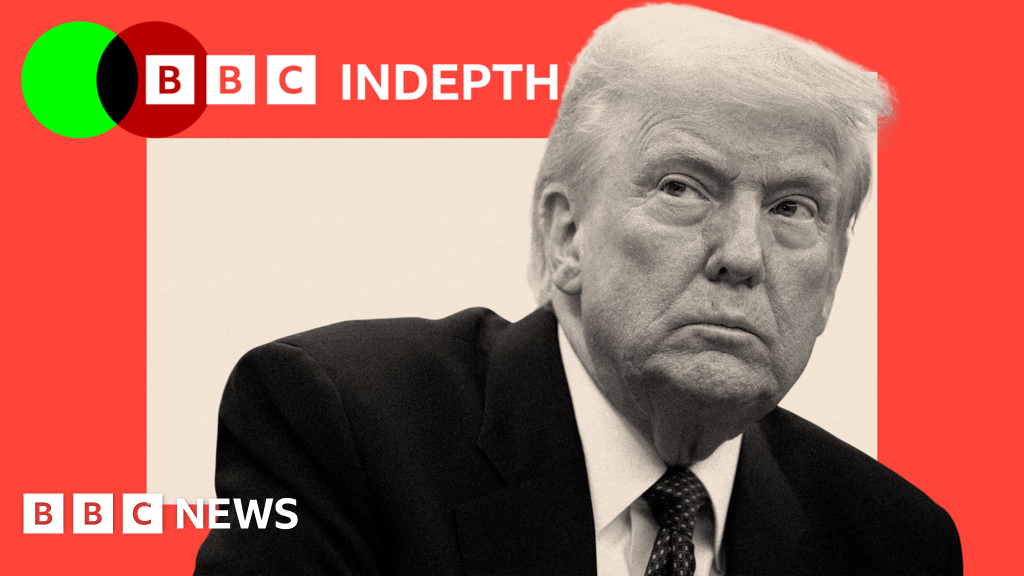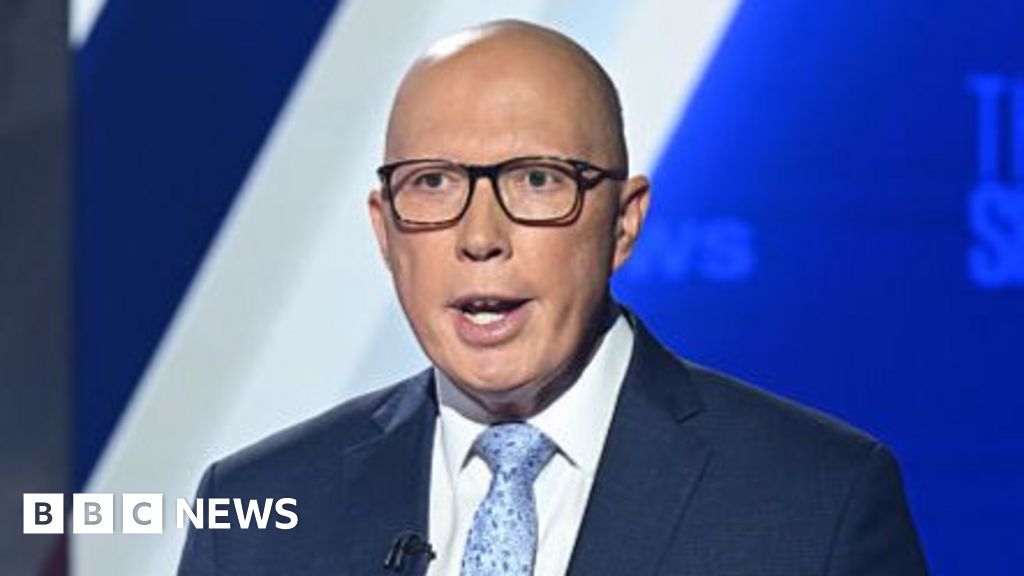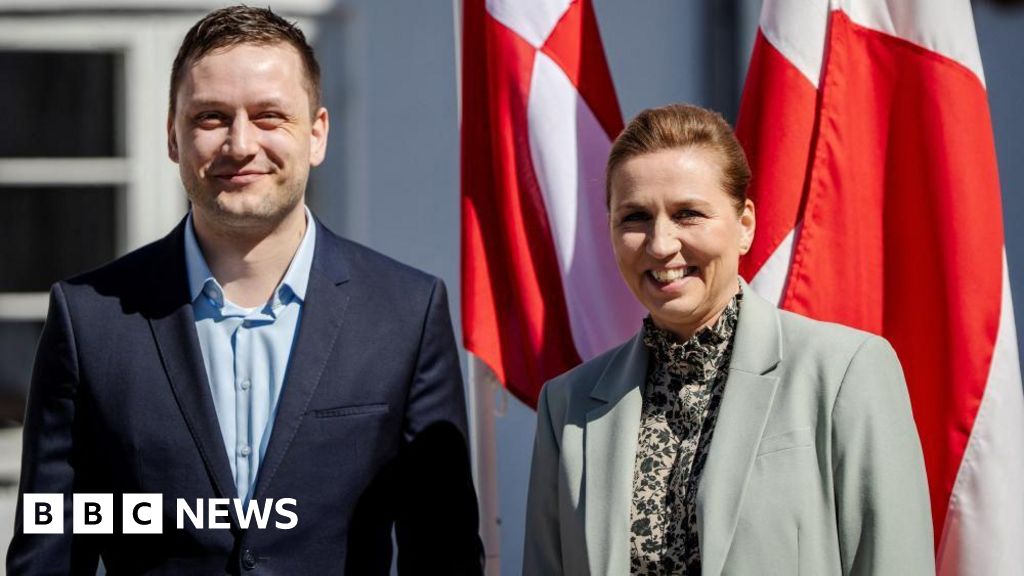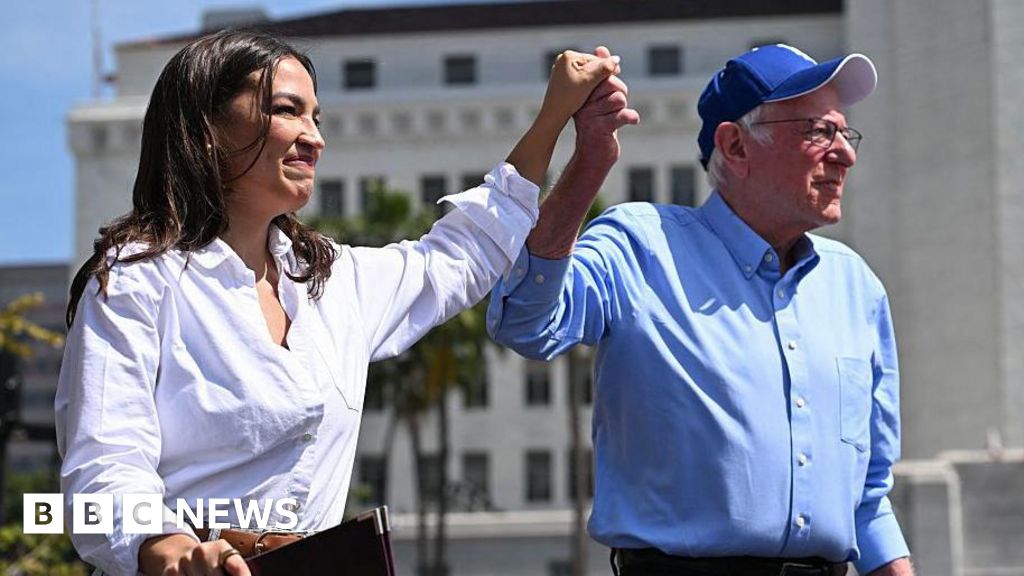Signs of a Possible Shift in Trump's Tariff Strategy: Insights from the IMF Meetings

In a significant development over the past week, the economic landscape of North America appears to be shifting, as I traveled from Arizona to Washington, D.C., and further on to Saskatchewan. This journey has revealed the profound consequences stemming from historic transformations in global economic management. Unprecedented uncertainty looms over the world economy, leaving many to question its future trajectory.
The brief nine-minute walk from the Rose Garden of the White House to the International Monetary Fund (IMF) headquarters serves as a metaphorical illustration of the divergent realities currently at play. Just days prior, President Trump initiated a contentious trade strategy involving what he referred to as "reciprocal tariffs," taking a bold stance against global trade practices. However, as the dust began to settle, the IMF hosted a gathering of finance ministers from across the globe to address the ensuing chaos and confusion resulting from this aggressive approach.
At the IMF meetingsencompassing discussions among G7 and G20 membersthe atmosphere was notably charged. Contrary to the previous expectation of outright hostility towards the U.S. representatives, the prevailing emotions were those of exasperation and deep concern. The global community expressed its bewilderment and disappointment over the U.S. decision to potentially jeopardize economic stability just as the world was beginning to recover from the adverse effects of the pandemic, escalating war tensions, and energy crises.
Particularly vocal in their criticism were East Asian countries, which had recently found themselves labeled as "looters and pillagers" of American jobs. This characterization stemmed from economic dynamics where these nations exported more goods to the U.S. than they imported. Japans finance minister, Katsunobu Kato, articulated the sentiment of betrayal among allies, expressing concern over the detrimental impact of U.S. tariffs on economic growth and market stability. The confusion surrounding U.S. trade negotiation objectives led to a sell-off of U.S. government bonds, reflecting a growing unease.
In the backdrop of volatile bond markets, the notion of retreat from the U.S. trade war began to emerge. There seemed to be an array of olive branches extended by the U.S. to encourage renegotiation with China, recognizing their economic accomplishments and suggesting a potential "beautiful rebalancing" of the global economy. Nevertheless, anticipated discussions between U.S. Treasury Secretary Scott Bessent and his Chinese counterpart ultimately did not materialize, leading many to speculate about a subtle shift away from the aggressive tariff strategy.
As leaders from around the world concluded their meetings with Secretary Bessent, there was a growing consensus that the U.S. was acknowledging the possibility of overreach in its trade policies. Major retailers, including Walmart and Target, have reportedly warned the President of impending product shortages, adding urgency to the reconsideration of tariffs.
The ongoing decline in container traffic from China to the Port of Los Angelesconsidered a crucial artery for global commerceprovides a concrete example of the situation's gravity. The IMF has even noted that satellite imagery reflects a decrease in the number of vessels departing from Chinese ports, further underscoring the economic implications of current trade policies, which officials in the U.S. may dispute.
Interestingly, the tone shifted considerably by the conclusion of the IMF meetings, largely due to Secretary Bessent's intervention. He has effectively taken charge of the tariff agenda and played a vital role in stabilizing both market sentiment and international relations. However, this newfound calm can be attributed to a series of unusual tactics employed within the White House. Rumors suggest that the Secretary was able to engage with Trump about the adverse effects of tariffs on the bond market after a particular economic adviser devised a strategy to distract Pete Navarro, a staunch advocate for hardline tariff policies.
Despite Bessent's efforts, insiders have hinted that Trump's loyalty to Navarro remains unshakeable due to Navarro's previous allegiance during politically tumultuous times. This dynamic presents a theatrical backdrop reminiscent of a historical fiction novel, where the very foundations of the global economy are at stake. With uncertainty prevailing, the fear that the U.S. might further complicate its trade relationships has taken root, overshadowing the immediate financial impacts of existing tariffs.
The ongoing uncertainty surrounding U.S. trade policy has sparked a range of speculative theories about potential future developments. Central banks, typically tasked with preserving financial stability during periods of acute stress, are now considering the implications of the U.S. possibly using its dollar "swap lines" as a diplomatic tool or even a weapon. The notion that the U.S. could deny these essential resources raises alarm bells about the stability of the global financial system. Although unlikely, the scenario could have dire consequences, prompting discussions about how trade surpluses could be leveraged against U.S. debt holdings.
In this unpredictable environment, confidence can be fragile, and incorrect assumptions can spread rapidly. One such instance was the speculation surrounding a significant sell-off of U.S. government debt shortly after the announcement of tariffs, with some attributing the move to Chinese sell-offs. However, evidence suggests that Japan, currently the largest creditor of the U.S., may have played a role, leading to questions about whether this was a calculated diplomatic maneuver aimed at influencing U.S. tariff strategies.
As Secretary Bessent took charge of the economic narrative in the U.S., he emphasized the importance of maintaining trust in the U.S. government bond market, stating that it remains the most secure in the world. This assertion, while reassuring, underscores the necessity for consistency and reliability in U.S. economic policy, which many believe is now in jeopardy. A senior finance minister from another nation remarked that no one appears to be generating goodwill towards the U.S., given the prevailing challenges the country faces in negotiating within its own bond market.
Furthermore, discussions about the baseline universal tariff of 10% have emerged as an additional layer of complexity. There is considerable debate among officials regarding the negotiability of this tariff, with President Trump previously suggesting that the revenue generated could potentially eliminate income taxes for numerous Americans. As a result, it is unclear how responsive the administration will be to international pressures or whether it remains steadfast in its current strategy.
This uncertainty also has implications for the U.K., which faces significant tariffs that could adversely affect its economy. With critical exports such as automobiles and pharmaceuticals at stake, the U.K. has been caught in a complex interplay of U.S. trade dynamics. Despite this, U.K. Chancellor has emphasized the importance of the trading relationship with Europe over the U.S., acknowledging the proximity and mutual benefits associated with trade partnerships within the continent.
In this context, a senior international official noted that the U.K.-EU rapprochement could serve as a model for other nations in responding to perceived U.S. unreliability. The post-Brexit landscape, while fraught with challenges, could also present opportunities for the U.K. to solidify its ties with European neighbors as it navigates the evolving global economic order.
As the world grapples with these complexities, the U.S.'s ongoing engagement with global financial institutions such as the World Bank and IMF remains crucial. Despite concerns about potential withdrawal from these entities, Secretary Bessent reaffirmed the U.S. commitment to their core functions while steering away from extraneous social issues. Many in the European community view this as a positive step amid the backdrop of uncertainty.
Looking ahead, the overarching question remains whether the U.S. intends to leverage the ongoing trade war as a means of uniting global allies against China. The recent tariff turmoil has raised eyebrows among partners, leading to doubts about the U.S.'s strategic approach. Spain, for instance, faces steep tariffs as an EU member state, despite nurturing a burgeoning economic relationship with China that has resulted in significant investments in green energy and technology transfer.
With the upcoming G7 Summit set against this backdrop, the incoming Canadian Prime Minister will face the critical task of navigating these tensions while fostering cooperative trade relationships. As President Trump prepares for this summit, the possibility for trade negotiation and de-escalation remains, but so too does the potential for increased discord. These next few weeks could prove pivotal for the global economy as nations assess their positions amidst this uncertain landscape.

























